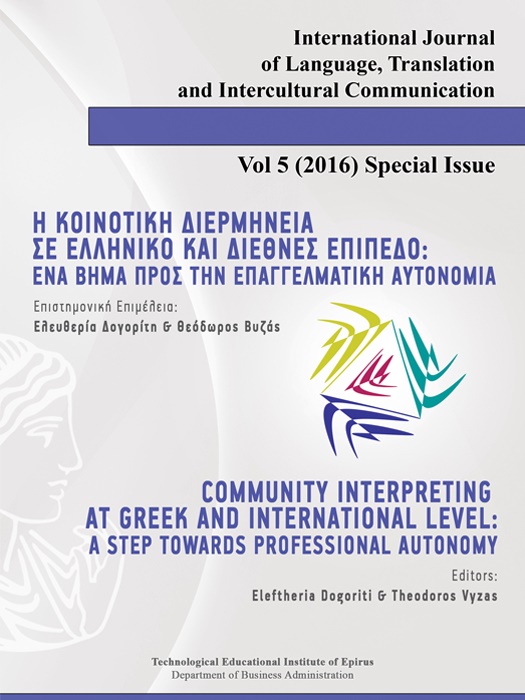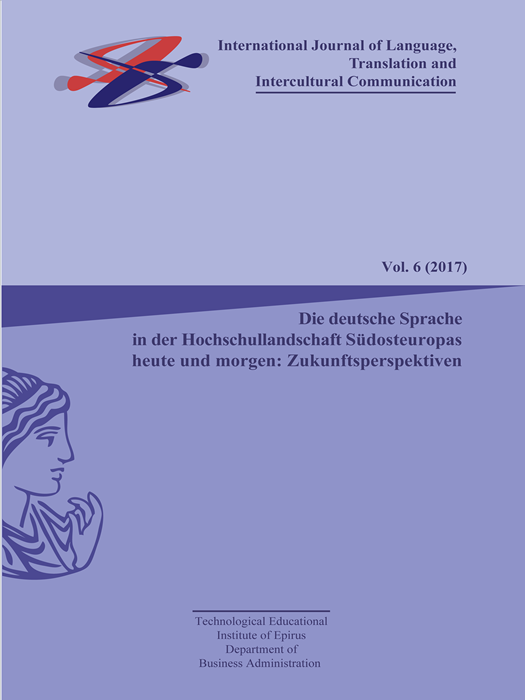Foreign language in the workplace: linguistic requirements in the Greek public administration sector
Abstract
Foreign language is an everyday necessity of every European citizen, since it is essential for the communication and adaptation to contemporary needs in education, workplace and everyday life. It is important that people, who have learned a foreign language, can put it into use in their daily communication. In this article, we intent to focus on the discussion pertaining to the foreign language use in the workplace and especially in the Greek Public Administration Sector. Our intention is to present and discuss the results of a study concerning the linguistic and intercultural skills needed in the working environment of concrete in the broader and narrower range of the Greek public sector. The research took place in the period from October to November 2010 in various areas of public services in the geographic area of Epirus (north-western Greece). It focuses on the language and intercultural skills that are required both for effective communication in a foreign language, as well as the execution of officer duties. Our main aim is to contribute to the academic discussion of defining the fields as well as the micro-skills that are necessary for the efficient execution of specific professional functions.
The results obtained from this research have shown that specific micro-skills are necessary for both oral and written communication. In addition, the research has shown the necessity of the acquisition of specific intercultural skills by the officers.
Article Details
- How to Cite
-
Garavelas, K., & Chita, A. (2015). Foreign language in the workplace: linguistic requirements in the Greek public administration sector. International Journal of Language, Translation and Intercultural Communication, 2, 31–43. https://doi.org/10.12681/ijltic.34
- Section
- Articles
Copyright Notice
Authors who publish with this journal agree to the following terms:
- Authors retain copyright and grant the journal right of first publication with the work simultaneously licensed under a Creative Commons Attribution License that allows others to share the work with an acknowledgement of the work's authorship and initial publication in this journal.
- Authors are able to enter into separate, additional contractual arrangements for the non-exclusive distribution of the journal's published version of the work (e.g., post it to an institutional repository or publish it in a book), with an acknowledgement of its initial publication in this journal.
- Authors are permitted and encouraged to post their work online (e.g., in institutional repositories or on their website) prior to and during the submission process, as it can lead to productive exchanges, as well as earlier and greater citation of published work (See The Effect of Open Access).





